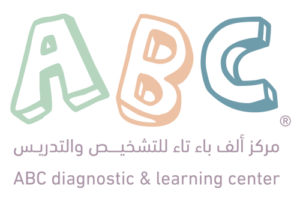Is my child autistic? How can I know?
What is Autism?

Autism Spectrum Disorder (ASD):
is a condition that affects brain development, impacting how a person interacts with others and communicates socially. This disorder causes problems in social interaction and communication, as well as restricted and repetitive behavior patterns. The term “spectrum” refers to the wide range of symptoms and levels of severity. ASD includes conditions that were previously considered separate, such as autism, Asperger’s syndrome, childhood disintegrative disorder, and some unspecified forms of pervasive developmental disorder. Some still use the term “Asperger’s syndrome” to refer to cases on the mild end of the spectrum.

Autism Spectrum Disorder (ASD):
is a condition that affects brain development, impacting how a person interacts with others and communicates socially. This disorder causes problems in social interaction and communication, as well as restricted and repetitive behavior patterns. The term “spectrum” refers to the wide range of symptoms and levels of severity. ASD includes conditions that were previously considered separate, such as autism, Asperger’s syndrome, childhood disintegrative disorder, and some unspecified forms of pervasive developmental disorder. Some still use the term “Asperger’s syndrome” to refer to cases on the mild end of the spectrum.
When does Autism Spectrum Disorder (ASD) begin?
ASD typically begins in early childhood, leading to problems in social functioning in areas such as school and work. Symptoms of autism often appear in the first year of life, although some children may seem to develop normally before symptoms emerge between 18 and 24 months. While there is no cure for ASD, intensive early treatment can make a significant difference in the lives of many children
Signs of Autism:
Some signs of Autism Spectrum Disorder (ASD) appear in early childhood, such as:
* Reduced eye contact, lack of response to their name, or indifference to caregivers. Other children may develop normally for the first few months or years of life but then suddenly become withdrawn, aggressive, or lose previously acquired language skills. Signs usually appear by age two.
* The child may engage in repetitive movements, such as rocking, spinning, or hand flapping. They may also engage in activities that could cause self-harm, such as biting or head-banging.
* They establish specific routines or rituals and become upset at the slightest change.
* They may have coordination problems or exhibit odd movement patterns, such as clumsiness or walking on toes, and have unusual, stiff, or exaggerated body language.
* They may be fascinated by details of an object, such as the spinning wheels of a toy car, but not understand the overall picture or function of the object.
* They may be unusually sensitive to light, sound, and touch, yet indifferent to pain or temperature.
* They do not engage in imitation games or pretend play.
* They may be intensely focused on an object or activity with abnormal enthusiasm or concentration.
* They may have specific food preferences, such as eating only a few types of foods or refusing foods with certain textures.
ABC Center: Your Premier Destination for Autism Spectrum Treatment in Riyadh
ABC Center, located in Riyadh, Saudi Arabia, is one of the leading centers specializing in the treatment of Autism Spectrum Disorder (ASD). The center is distinguished by its team of highly qualified doctors, specialists, and therapists who deeply understand the unique needs and challenges of children with autism and are dedicated to providing the highest quality care and support.


ABC Center: Your Premier Destination for Autism Spectrum Treatment in Riyadh
ABC Center, located in Riyadh, Saudi Arabia, is one of the leading centers specializing in the treatment of Autism Spectrum Disorder (ASD). The center is distinguished by its team of highly qualified doctors, specialists, and therapists who deeply understand the unique needs and challenges of children with autism and are dedicated to providing the highest quality care and support.
What Sets Us Apart?
What Sets Us Apart?

Expert Team:
Our center is home to a group of experienced professionals in the field of autism therapy.
Cutting-Edge Techniques: We utilize the latest therapeutic methods, including Applied Behavior Analysis (ABA), to enhance communication, social, and behavioral skills.
Personalized Programs: Every child receives a customized treatment plan tailored to their specific needs.

Our Services:
Applied Behavior Analysis (ABA): A proven approach to improving communication, social interaction, and behavior in children with autism.
Family Support: We offer guidance and counseling to help families better understand autism and manage daily life more effectively.
Supportive Environment: A safe and nurturing space that encourages growth and confidence in every child.

Why Choose ABC?
What makes ABC Center truly special is its deep, individualized understanding of children with autism. It’s more than just a treatment center—it’s a place where children can thrive, and families can find hope and support. Let us help your child reach their full potential!

Expert Team:
Our center is home to a group of experienced professionals in the field of autism therapy.
Cutting-Edge Techniques: We utilize the latest therapeutic methods, including Applied Behavior Analysis (ABA), to enhance communication, social, and behavioral skills.
Personalized Programs: Every child receives a customized treatment plan tailored to their specific needs.

Our Services:
Applied Behavior Analysis (ABA): A proven approach to improving communication, social interaction, and behavior in children with autism.
Family Support: We offer guidance and counseling to help families better understand autism and manage daily life more effectively.
Supportive Environment: A safe and nurturing space that encourages growth and confidence in every child.








